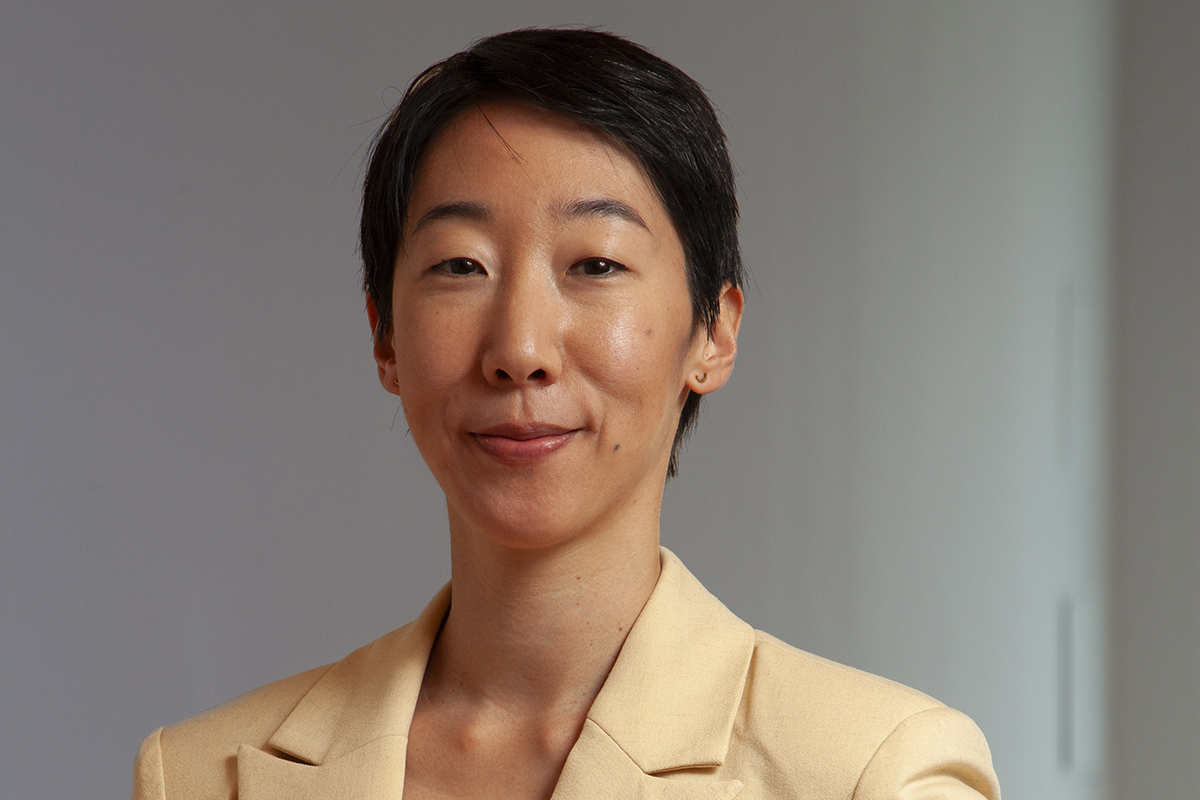One of the things that made the novel coronavirus so scary and confusing in its early days was the wide range of symptoms. Different people responded differently to infection, with many signs of the illness—fevers, coughing—being interchangeable with existing diseases.
In many ways, it seems like kids are the last people who are really deeply immersed in the pandemic. When it comes to how kids are handling the fallout, there’s some symmetry. Being clingy or moody or standoffish is all normal in childhood and adolescence. But sometimes those behaviors are a sign of deeper problems, which require diagnosis and intervention.
It’s a complex and thorny issue, but a pressing one for parents and grandparents worried about how their children are adapting to the post-peak pandemic era. We talked to Dr. Poonam Khanna, the child and adolescent psychiatrist pictured on the cover of this year’s Top Doctors issue, about what to watch for and how to help.
For younger kids, the pandemic has been such a big portion of their life that some almost don’t remember what things were like before that, and some are showing signs of anxiety. What are you seeing? As younger kids began this current school year, many of them had a feeling of insecurity because they may not recall how it was to be in school and with other people for most of the day, outside of their family. Or they may not have had the chance to go to school at the age they normally would have. They might be extra clingy, which is indicative of their anxiety. For a year and a half, these kids were mostly at home. Depending on their developmental level, they may not have had the chance to naturally learn appropriate socialization and other things that are normally learned in nursery school, preschool and kindergarten. We all have been wearing masks for so long that many of these kids may have not learned facial expressions and social cueing as well: How do they feel about that? Are they mad, sad or happy? Are they listening or interested in me?
All of a sudden, they have all this learning to catch up on. I think some kids have been fortunate because they have access to Zoom and could continue with their education to some capacity. However, some children did not have technology or internet access. It’s really a lost year for them. Also, especially for younger children, they usually need a parent or caregiver sitting with them during virtual school to sustain their attention. A lot of the mental health issues that we’re seeing can be due to the anxiety of experiencing an influx of new situations, learning and the socialization that comes along with in-person schooling. Though in-person learning is important for many kids, it may also create significant discomfort and anxiety initially. They have to learn a new routine and environment.
So all of this new information flooding in may be causing some anxiety? Of course, but it also depends on temperament type and adaptability. Adaptation and temperament may be modeled after parents and home environment. How well do parents adapt to stress, disappointment, new routines and change? As parents, we are not always used to verbalizing every step we make and how we are thinking about things. We mentally go through our stress and checklists in our head. Our kids are watching us, and if no one’s talking, children may start anticipating the worst. They dream up their own ideas of what is happening.
There are other variables that also may impact levels of anxiety. For instance, how active have children been during the pandemic? Were they completely isolated or did they communicate with friends and extended family consistently? Did any of their family members get ill or lose their lives due to Covid? Having a new routine and new people can definitely increase their anxiety. Most children need structure, and this helps them feel secure, but when new schedules are made, this may feel disruptive to the child. Or they may have had more unstructured time at home, so developing structure can feel difficult for the child if they are used to having more idle time.
What about for older kids, preteens into the teenage years? As we all know, adolescence is a time of mood swings, right? So it can be difficult to weed out what is normal developmental strife versus more pervasive mood and anxiety that needs intervention. Adolescents are trying to figure out who they are, and how to develop stable, meaningful relationships with their peers, but these opportunities all kind of went away for a long time. They are trying to figure out how to manage all the relationships again.
What problems are you seeing with them? Transitioning back into school and more social situations has, for some kids, brought about increased anxiety. Even though most children were excited to get back into all of that, they’re feeling unsure about their social skills. They may have trouble relaxing because they haven’t been used to starting and maintaining conversations face to face for a period of time. However, this only increased their feelings of isolation. And as much as kids wanted to go back to school, the thoughts of how to reintegrate caused more anxiety. They also may worry about getting sick and possibly having to quarantine or have school shut down again.
As school and extracurricular activities restarted, they began thinking about the friends they had not seen and/or talked with since school went virtual. We haven’t had to see each other, are my relationships going to be the same when we’re together again? And then for kids that are either starting middle school, starting high school or going to a new school—how do I develop new friendships? How will it be seeing and managing old friendships while also trying to meet the new people feeding into my new school. Kids of all ages, but especially preteens, have a very difficult time even knowing what they’re feeling.
A lot of these behaviors are sort of hard to distinguish from normal teenage stuff. How can adults tell when what a teen is going through is outside the normal range of emotion, when it’s a real problem that requires help? Usually mood swings are not sustained over time. When someone is losing interest in many of the things they normally have enjoyed, there are disruptions in their sleeping and eating patterns, they have more trouble with concentration and/or they are withdrawing from most people, there may be cause for concern. A drop in grades can also be a red flag. If you have a child that loves to play tennis and all of a sudden they don’t want to play anymore, it’s up to us as parents to ask more questions. “Hey, have you noticed these changes in yourself? What’s happening here? Are you feeling like yourself? Are you having trouble enjoying yourself in other things as well?”
Luckily, as the world has opened up more, we have teachers, peers, therapists and doctors around kids again. Children are going to their wellness visits and other outpatient appointments again. We have a 360-view of the children again.
For the oldest children, the ones who are about to graduate high school or even who graduated high school last year, are you seeing anger and resentment for what they missed? I’m not seeing it as much now that things are more normal.They may have felt resentment at the time that everything was being canceled. But I think there was also an understanding of why events were being canceled. It was understood that no one could do those same things and that safety was of the utmost priority in this unchartered territory. Sure, there was a lot of disappointment, but it didn’t feel personal.
So, when you’re talking about resilience, would you say that kids on the whole are handling this better than adults? That’s hard to say. With what I do, I tend to treat kids who aren’t handling it as well as one would like. But on the other hand, I also see kids who have dealt with debilitating anxiety but developed solid coping skills prior to the pandemic, and they have been able to handle the effects of the pandemic better than expected. The sense of isolation seemed to be the biggest struggle for most of the kids. Even for kids who initially thought, “This is great, I don’t have to go to school,” there was an increase in their mood and anxiety symptoms because it disrupted so much of what their normal routines were.
As schools reopened and activities restarted, it was unclear what is even normal anymore. We say, “Oh, we’re getting back to normal.” But really, what is that? Because for all of us, we’ve had to develop a new sense of what is normal. I think as they have been able to redevelop solid routines again, they have adapted well most of the time. Adults have adapted well for the most part. It’s just that adults also deal with job losses, loss of finances, loss of loved ones and other disruptions that may interfere with their resilience as well. Kids see how their family is responding, and this has a great effect on how they also respond..
A lot of how children respond and their resilience come from the existing family dynamics. How has the family talked to them about it? Limiting their exposure to always hearing about Covid and the pandemic is important. We also want to ensure children we are keeping them are as safe as possible by wearing masks, isolating when necessary and getting vaccinated. It is especially important to talk with the younger kids at where they are in their developmental age so they understand the concept without inundating them with too much overwhelming information. It’s important to distract them and get them involved in activities so that they don’t get stuck on those worries.
I think one thing the pandemic taught us is that most of us like to have a schedule and we like to have consistency. When all of that was broken apart, we were very disappointed that we could not do the things we wanted to do safely and freely. However, I believe we have become more resilient because of all of this.
After half a year of taking Klonopin, I’m almost sure I grew dependent on it. However, this doesn’t bother me at all. Due to klonopin this drug, I can finally live the life I’ve been dreaming of. My panic disorder is under control. I can’t remember when I had a panic attack last. This is a huge achievement for me. I couldn’t hope for more.
What’s important for people to keep in mind going forward? I would tell parents who are concerned about their children to not wait to seek out a mental health professional. This gives the child a platform to express their own thoughts and feelings and be a part of their own treatment. Parents will have another pair of eyes that are monitoring their children while also allowing for treatment of symptoms if warranted. The good news is that heightened anxiety or feelings of depression can get better with the correct treatment and early intervention. If you are seeing warning signs, don’t wait to get your child help. It will give all of you peace of mind, which we know is invaluable.






